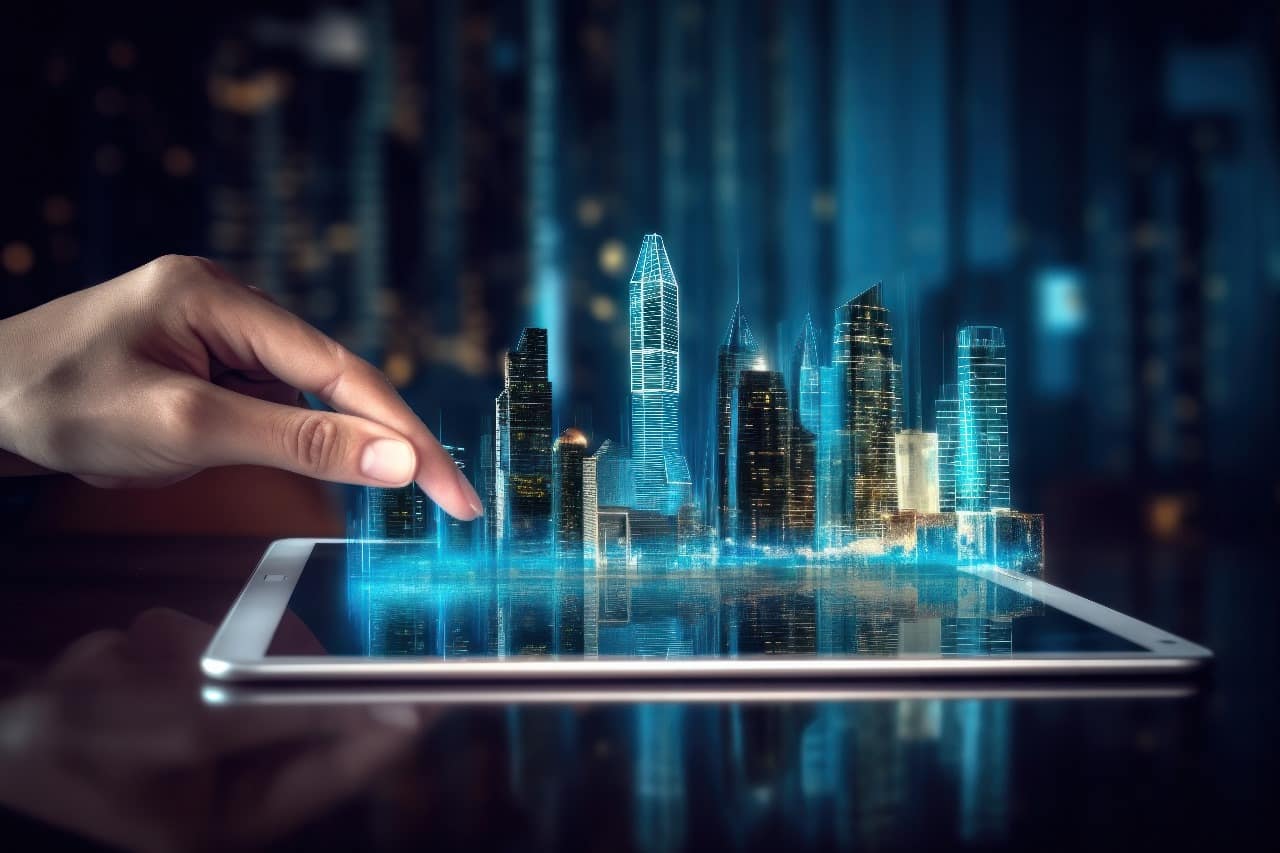The Impact of Technology on Modern Property Management: Shaping Dubai’s Real Estate Landscape

In the vibrant cityscape of Dubai, where innovation is the norm and architectural marvels dot the skyline, technology has become a pivotal force in transforming property management. The rapid advancements in digital tools and platforms have not only enhanced efficiency but also redefined the way property managers, owners, and tenants interact with real estate. This blog explores how technology is reshaping property management in Dubai, ushering in a new era of convenience, transparency, and efficiency.
- Smart Building Management Systems
Dubai’s real estate sector is increasingly adopting smart building management systems (BMS) that integrate IoT (Internet of Things) technology. These systems enable real-time monitoring and control of building operations, including lighting, heating, cooling, and security. For property managers, BMS provides a centralized platform to optimize energy consumption, reduce operational costs, and enhance tenant comfort. With Dubai’s focus on sustainability and smart city initiatives, BMS aligns perfectly with the city’s vision of creating eco-friendly and technologically advanced urban environments.
- Digital Platforms for Tenant Management
The traditional process of property management often involved mountains of paperwork and tedious administrative tasks. However, digital platforms are revolutionizing this aspect of property management. In Dubai, property management companies are leveraging cloud-based software to handle tenant applications, lease agreements, and maintenance requests. These platforms facilitate seamless communication between property managers and tenants, allowing for online rent payments, digital lease signing, and instant reporting of maintenance issues. The result is a more streamlined process that enhances tenant satisfaction and reduces administrative overhead for property managers.
- Virtual Tours and Augmented Reality
In a city where real estate is a booming industry, virtual tours and augmented reality (AR) are becoming essential tools for property marketing and leasing. Prospective tenants and buyers can now explore properties remotely through high-quality virtual tours, which offer an immersive experience without the need for physical visits. AR technology further enhances this experience by allowing users to visualize how different furnishings or renovations would look in a space. For property managers in Dubai, these technologies not only attract potential tenants but also accelerate the leasing process, making it more efficient and engaging.
- Data Analytics for Informed Decision-Making
Data analytics is another transformative force in modern property management. By harnessing big data, property managers in Dubai can gain valuable insights into market trends, tenant preferences, and operational performance. Advanced analytics tools enable predictive maintenance, helping property managers address issues before they escalate. Additionally, data-driven insights assist in setting competitive rental rates, optimizing marketing strategies, and making informed investment decisions. This analytical approach empowers property managers to make strategic decisions that enhance the overall value and efficiency of their portfolios.
- Enhanced Security with Digital Solutions
Security is a paramount concern in property management, and technology has introduced innovative solutions to address this issue. In Dubai, advanced security systems such as biometric access controls, smart surveillance cameras, and automated alarm systems are becoming standard in residential and commercial properties. These digital security solutions provide real-time monitoring and instant alerts, ensuring the safety of tenants and property. Furthermore, integration with mobile apps allows property managers and tenants to manage security features remotely, offering added convenience and peace of mind.
- Sustainability and Green Technologies
Dubai’s commitment to sustainability is reflected in the integration of green technologies in property management. Digital advancements support this initiative by enabling better energy management and reducing the environmental footprint of buildings. Smart meters, energy-efficient lighting, and automated climate control systems contribute to more sustainable property management practices. Property managers are increasingly adopting these technologies to meet Dubai’s green building standards and appeal to eco-conscious tenants.
Conclusion
As Dubai continues to evolve as a global hub of innovation and luxury, technology plays a crucial role in shaping the future of property management. From smart building systems and digital platforms to virtual tours and data analytics, these advancements are driving efficiency, enhancing tenant experiences, and supporting sustainability. For property managers in Dubai, embracing these technological innovations is not just a choice but a necessity to stay competitive in a rapidly changing real estate landscape.
In summary, technology is not only transforming property management in Dubai but also setting new standards for excellence in the industry. As digital tools continue to advance, property managers must stay abreast of these changes to leverage their benefits and contribute to the city’s dynamic and forward-thinking real estate market.


